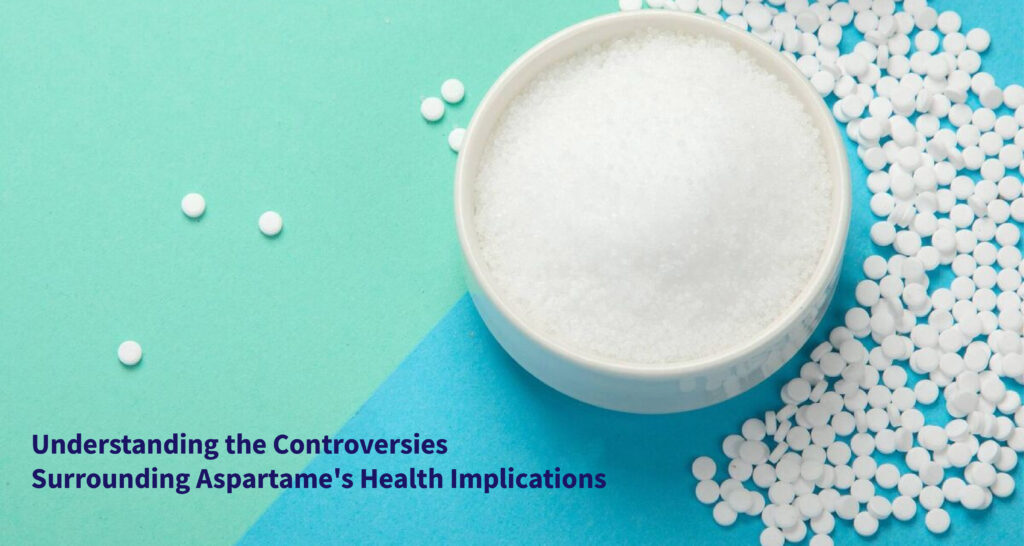Aspartame is a widely used artificial sweetener, which has been controversial due to concerns about its potential side effects. While regulatory authorities have approved its safety, recent evaluations by the World Health Organization (WHO) highlight its classification as “possibly carcinogenic to humans.”
- The Beginning of the Use of Aspartame: Aspartame gained popularity in the 1980s as a low-calorie and sugar-free alternative to sweeten various food and beverage products. Aspartame became famous for its intense sweetness, providing the same sweetness as sugar but fewer calories. It is commonly used in products like diet drinks, gelatin, yogurt, breakfast cereal, chewing gums, toothpaste, and medications.
- Evaluations conducted by International Organizations: The International Agency for Research on Cancer (IARC), along with the WHO’s Joint Expert Committee on Food Additives (JECFA), classified aspartame as “possibly carcinogenic to humans” based on limited evidence for cancer in humans. This classification suggests potential carcinogenicity but does not establish a definitive link between aspartame consumption and cancer.
- Opinion of Regulatory Authorities: Regulatory authorities, such as the U.S. Food and Drug Administration (FDA) and the European Food Safety Authority (EFSA), have conducted thorough assessments of aspartame’s safety. They have set acceptable daily intake (ADI) levels and determined that aspartame is safe for consumption within those limits. These bodies emphasize the need for continued research but maintain that the current evidence does not warrant immediate concern.
- Controversies and Reported Side Effects: Some people are worried about the possible adverse effects of consuming aspartame, even though regulators have approved it. Some individuals have reported symptoms such as headaches, dizziness, gastrointestinal problems, and allergic reactions related to aspartame consumption. However, there is currently limited and inconclusive scientific evidence establishing a direct cause-and-effect relationship between aspartame and these side effects.
- The Need for Further Research: The classification by the IARC and the ongoing controversies surrounding aspartame highlight the importance of continued research. Long-term studies are necessary to evaluate the effects of regular and high-dose aspartame consumption, potential interactions with pre-existing health conditions, and the impact on specific population groups. Comprehensive research will provide a better understanding of the safety of aspartame and any potential risks involved.
- Consumer Awareness and Individual Choices: While the scientific debate continues, consumers need to stay informed about the safety of aspartame. Individuals with specific health concerns or conditions should consult healthcare professionals for personalized advice on consuming aspartame or other artificial sweeteners. Individuals can choose based on their unique health needs and preferences as research progresses.
Conclusion: Aspartame, an artificial sweetener, has been controversial due to concerns about its potential side effects. Regulatory authorities have approved its safety within certain limits, but recent evaluations by the WORLD HEALTH ORGANIZATION (WHO) suggest a possible link to cancer without establishing a definitive connection. Scientific evidence on reported side effects is inconclusive. Further research is needed to understand the long-term effects, interactions with health conditions, and impact on specific populations. Consumers should stay informed, consult healthcare professionals, and choose based on their needs and preferences.






